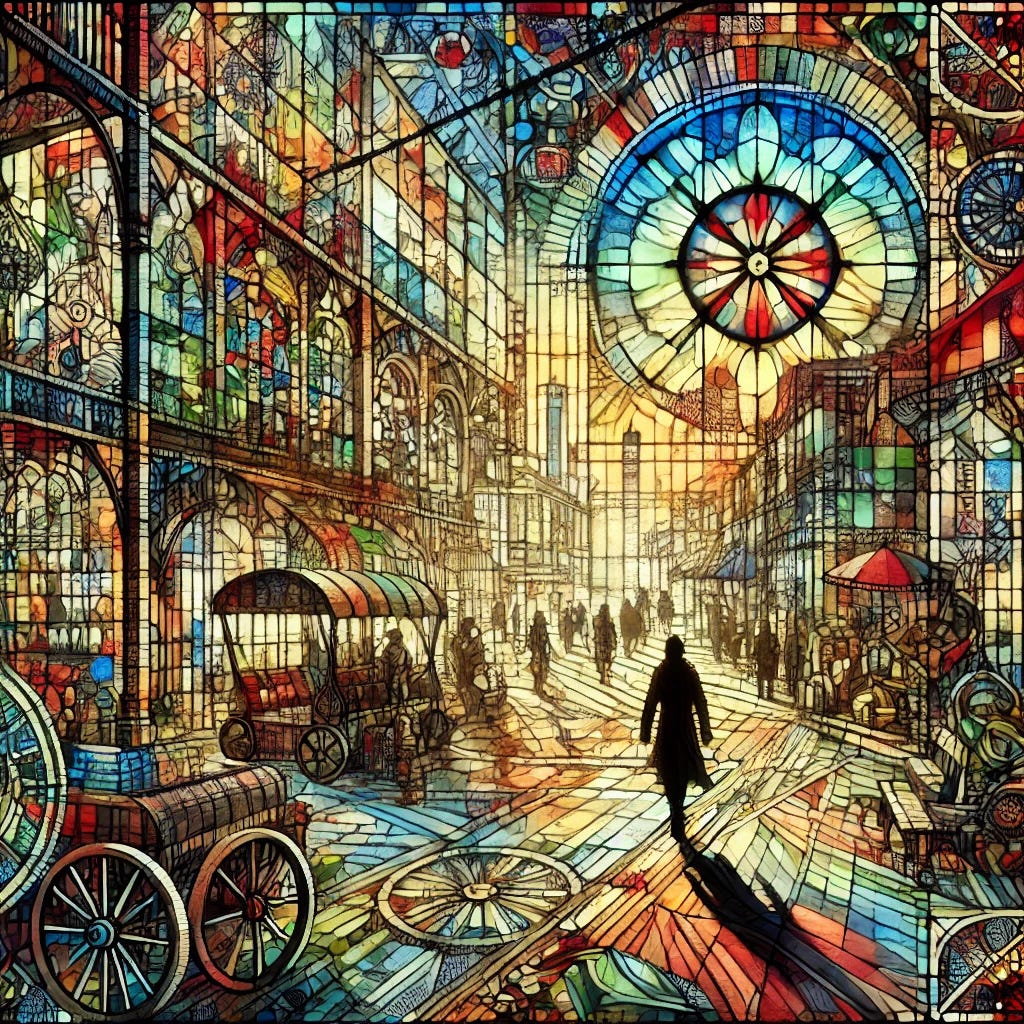5G Fury
5th Generation Warfare and What You Must Do About It
The “target” isn’t a city or an army but the mental and relational fabric of a society.
Fifth-generation warfare (5GW) has no front lines you can map on a battlefield. Its front is the mind; its trenches are conversations; its artillery is the steady, invisible drip of narratives that redefine who you trust, who you fear, and who you think you are. The aim is not to kill bodies but to rend bonds, to atomize the commonwealth into warring shards, and then harvest the wreckage: political control, economic advantage, cultural dominance, data, obedience.
Operations are surgical.
First: saturate attention.
Flood every channel with noise—contradictory facts, amplified grievances, staged scandals, half-truths dressed as revelation. When truth is drowned in volume, the public surrenders discernment and substitutes certainty with the easiest story.
Second: weaponize identity.
Reduce persons to tags—race, region, creed, gender, party—and make those tags into markets for rage. Algorithms favor outrage because outrage is clickable; outrage becomes identity; identity becomes a wall that prevents persuasion and requires only performance.
Third: privatize institutions.
Undermine civic intermediaries—schools, churches, unions, neighborhood institutions—so people must seek community on platforms you control. Where community is rented, loyalty is purchasable.
Fourth: normalize betrayal.
Promote a culture where denunciation is valor and forgiveness is weakness. Social trust collapses when the cost of being wrong is public shaming, loss of livelihood, or social exile. Once people fear one another, coordination dies.
Fifth: harvest.
Fragmented societies sell resources cheap—political concessions, land, markets, data—and become malleable. The true victory is extracted in peace: contracts, influence, cultural capital.
Face It
This conflict is fought without uniformed armies because the prize is not territory alone but the capacity to govern belief and behavior. It is a siege of the soul. Countering 5GW is not an act of high technology alone; it is discipline, covenant, and art.
Practice truth discipline. Teach neighbors to slow their sharing, to verify before amplifying, to value epistemic humility. Create local anchors—trusted people for vetting information.
Repair the intermediaries.
Rebuild schools, guilds, churches, and neighborhood networks that require embodied participation. A people who habitually meet face to face, work together, and bind responsibilities in public are inherently harder to fragment.
Reclaim identity by re-anchoring it to higher goods.
When identity is only grievance, it is exploitable. Anchor identity in callings—family, trade, faith, civic duty—things that require sacrifice and produce obligations to known persons.
Institutionalize mercy.
Make systems that reward restoration over denunciation. Where repentance and reconciliation are possible, actors are less likely to weaponize every error.
Diversify dependency.
Economic independence, local supply lines, decentralized saving and lending, and resilient local enterprises deny harvesters leverage. If the villain cannot buy your loyalty with credit, their strategy fails.
Practice narrative arts.
Storytelling, ritual, music, art, and public liturgies that unify are not soft frills. They are civic armor. A culture that shares a story is harder to splinter into disposable fragments.
A tactical checklist for fathers and saints:
• Audit your information diet. Reduce sources; prefer long-form, primary sources; teach citation habits.
• Create circles of seven to twelve people who meet weekly in person and practice truth-telling.
• Make local events mandatory training grounds for civility—greetings, apprenticeship, low-stakes debate.
• Build economic fallback—skills, mutual credit, shared inventory—so blackmail and supply shocks lose teeth.
• Reward reputational repair publicly: when someone apologizes, make restoration visible and costly to mock.
This is not naïve optimism.
It is strategic realism. Fifth-generation attacks succeed because they assume passivity; they assume we will consent to being divided. They bank on our exhaustion, our dopamine reflexes, and our willingness to offload responsibility for truth to screens.
Refuse the consent.
Fortify the small institutions that bind neighbor to neighbor. Teach discernment like drill. Worship, work, and sing together. Tell unifying stories that require flesh and time. Where bound by covenant, the coward find no easy crops to steal.
The last truth is plain: fragmentation is not inevitable. It is an engineered condition sustained by attention, incentives, and habit. Break the chain by changing the habits. Make truth a discipline. Make mercy a policy. Make neighborliness a non-negotiable practice.
Do these things and the battlefield shifts to your advantage.
The weapons of 5GW—meme, algorithm, outrage—lose precision when aimed at people who are whole, who know their neighbors, and who measure life against higher orders than convenience and clicks. In such a world, the courage inimic of Good Seed is more precious than rubies. You have some.





